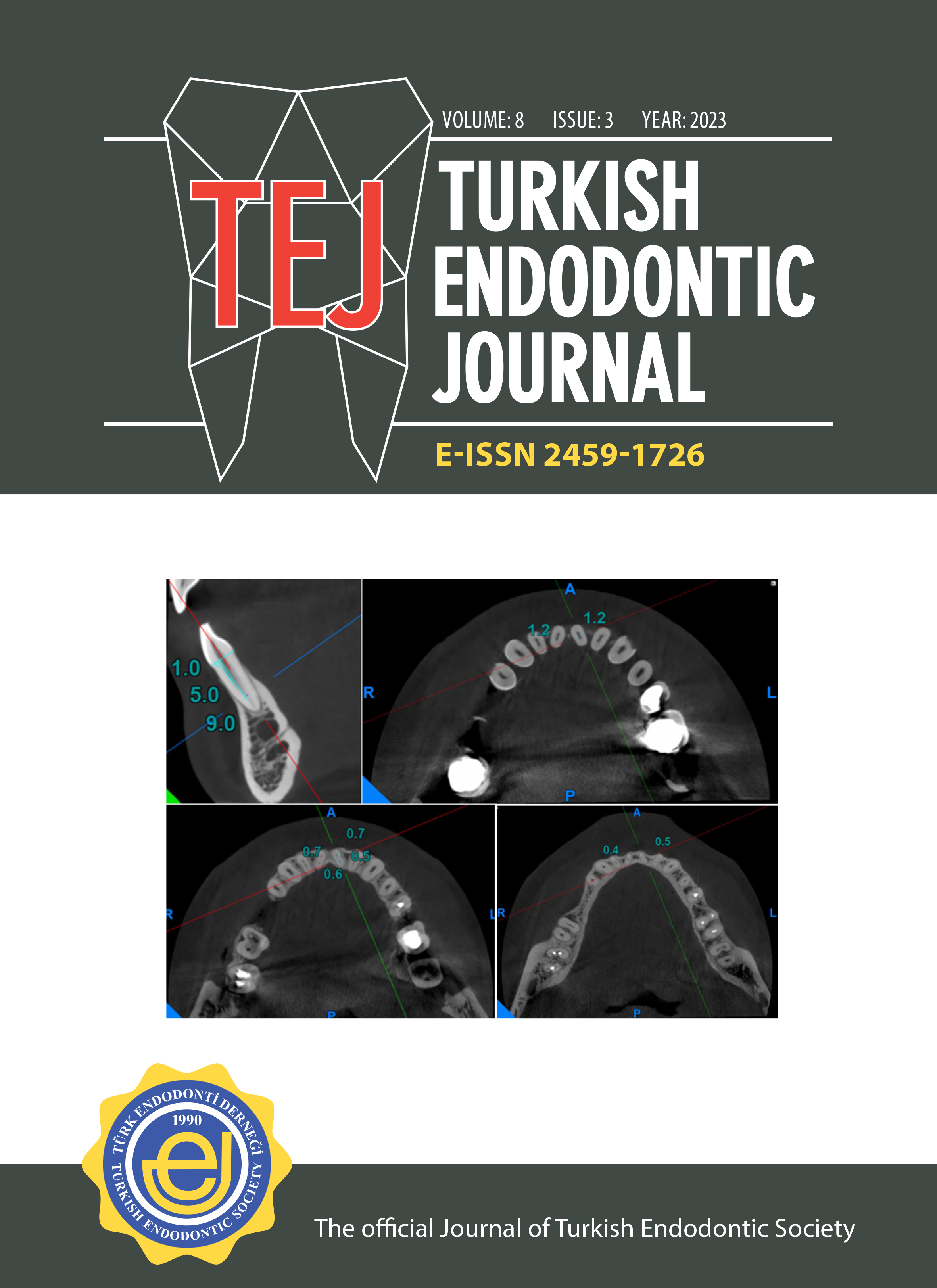Do age and sex factors affect dentin thickness of mandibular incisors?
Öznur Sarıyılmaz1, Rüya Sessiz21Department of Endodontics, Çanakkale Onsekiz Mart University Faculty of Dentistry, Çanakkale, Türkiye2Department of Dentomaxillofacial Radiology, Çanakkale Onsekiz Mart University Faculty of Dentistry, Çanakkale, Türkiye
Purpose: The purpose of this study was to evaluate the root dentinal thickness of the mandibular incisor teeth in relation with the age and sex using cone-beam computed tomography (CBCT).
Methods: CBCT images of 320 mandibular incisors of 40 male and 40 female patients were analyzed retrospectively. The mesial and distal dentinal thickness was measured at three points as coronal, middle, and apical root canal thirds. The images were analyzed using a software and analyzed to investigate the differences in the dentinal thickness association between age and sex.
Results: Dentinal thickness decreased significantly from coronal to the apical root canal level. The middle and apical dentinal thickness of mesial side the roots were found significantly higher than the distal side of the root.
Conclusion: The coronal and apical dentinal thickness of the roots was found to be higher in males than females while the middle root dentinal thickness was found to be higher in females than males. It was found that dentinal thickness increased with age only in the coronal root region.
Keywords: Age, cone-beam computed tomography, dentin, incisor, sex.
Manuscript Language: English



















